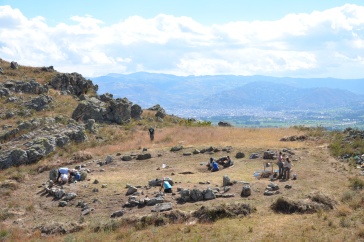Dear Colleagues,
Once again, we face another tragic loss due to gun violence. Seventeen people died last Wednesday, February 14 in one of the deadliest school shootings in U.S. history at the Marjory Stoneman Douglas High School in Florida. The tragedy in Parkland Florida was the 18th school shooting this year (according to Everytown for Gun Safety). There have been 200 school shootings since Sandy Hook in 2012.
Wednesday’s shooting in Florida came just days after President Trump released his budget, which proposes cutting millions of dollars from the National Instant Criminal Background Check System. What's stunning to me is the fact that this kind of violence only happens in the United States. Is this a consequence of inaction?
As Professor Justus Ogembo pointed out in a correspondence Todd DeMitchell and I had with him last week, there is a crisis in white masculinity that calls out for articulation. I also believe there is a crisis in civic consciousness and bias. I'm concerned, for example, that rather than addressing gun control head on, people suffering with mental illness are stigmatized and targeted. Rather than hiding behind the trope of mental illness, how can we develop public pedagogical approaches for law enforcement and parents and others, that teach about the crucial need for gun control in an era of easy gun access and loose background checks?
There is an emerging youth crusade against gun violence. Young people are not only taking to the streets in response to the Parkland shooting, they are running for office and demanding change, as made evident by Parkland High School shooting survivor Emma Gonzalez’s powerful speech to the Trump administration early this week (https://www.democracynow.org/2018/2/19/watch_parkland_high_school_shooting_survivor). This impromptu movement, born out of trauma, ethical outrage and loss, promises to grow until demands are met to urge Congress to create strict background checks for gun buyers, impose a ban on assault rifles, and, in Florida, lobbying local politicians to pass stricter gun laws. How can we, as educators, join our students to ensure that these efforts impact policy changes in substantive ways?
Colleagues, I am including below materials written by Todd DeMitchell, Carla Evans, Casey Cobb, and Suzanne Graham that address gun violence and security responses in our schools.
Please take the time contribute to this post and continue to add resources we might refer to as we learn and work together to address the critical issue of security in schools and society.
Paula Salvio
Chair and Professor of Education
















































